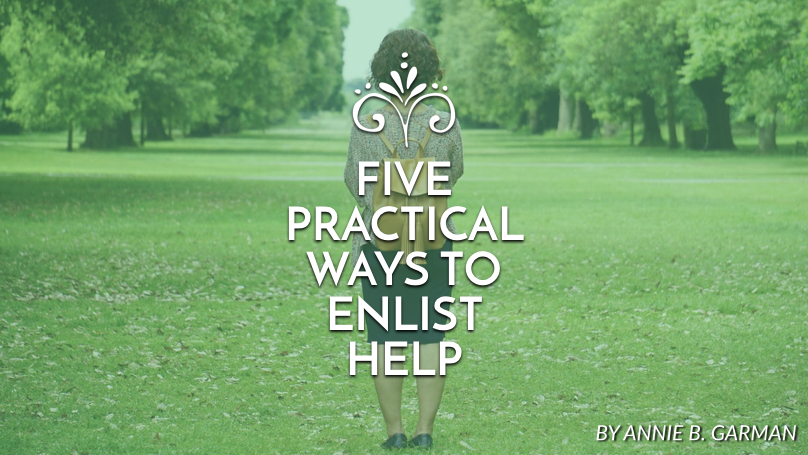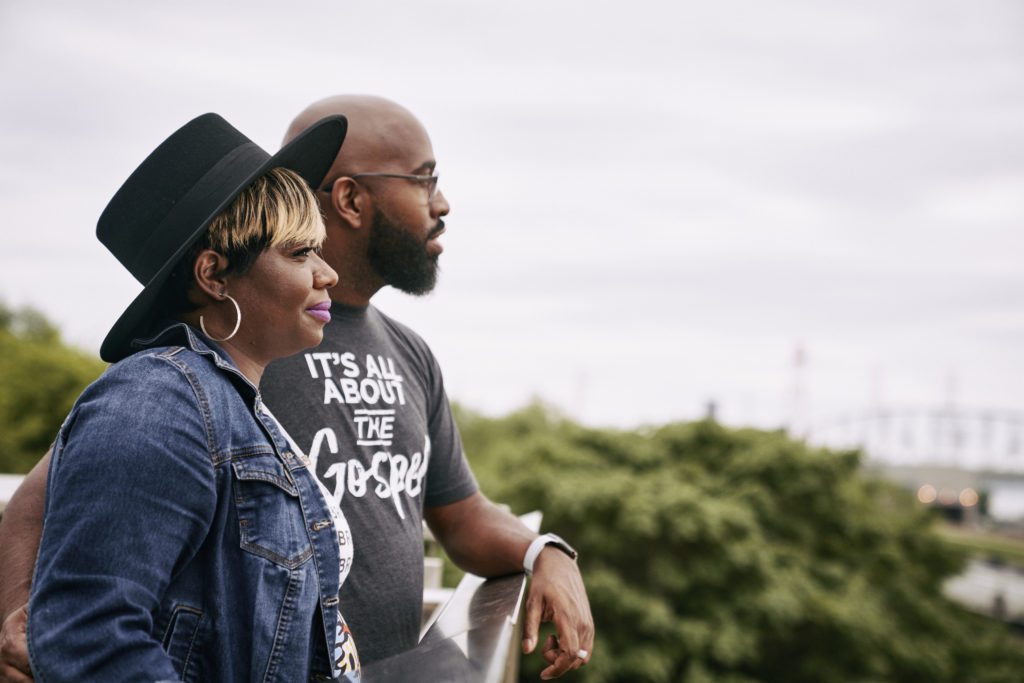My friend has six kids who are each involved in multiple activities. Recently, I was trying to get to the bottom of her life. “How do you possibly do it?” I asked one evening. After listening for a while, I discovered her secret. She’s not afraid to enlist help. Neighbors help with rides to activities. She delegates a lot.
I tend to lean towards the opposite. Asking for help managing my home is a constant battle. Somewhere along the way, I’ve bought the lie that I should be strong enough to do it all. Though I’ve struggled to enlist help at home, asking others to help with ministry at church has never been easier; probably because I’m convinced that it shouldn’t be all my responsibility.
Here are five practical ways to enlist help and empower others instead of doing it all yourself.
1. Decide it’s worth doing.
You won’t be able to ask for help until you’re convinced it’s worth doing. The best way to discern if something is worth enlisting aid is to get alone on your knees. Is God stirring something in you? Is it close to the heart of God, or is it something He didn’t have in mind when He gave us His final instructions? If you believe your idea is biblical and Spirit-led, then you decide if it’s worth doing.
2. Cast vision.
When I decided our church needed to intentionally reach out to internationals, I made a pitch. I implored our congregation to look around at the gospel opportunity that had basically been dropped in our laps. I asked them for help even though I wasn’t sure if our members were seeing what I was. They needed to hear how gospel ministry to internationals was strategic and Biblical. Our congregation needed a picture of how it would look if our neighbors knew the love of Jesus—perhaps they’d reach and proclaim it in their home countries. Our congregation just needed someone to cast that vision.
3. Observe.
Now that you’ve communicated what you believe God has tasked you with, look around. What gifts are in your congregation? I’m not just talking about Justin who can play the guitar. I’m talking about gifts that people don’t even realize they have. Does Amy seem to come alive when she opens her home to people? Does Diana really have a knack for decorating? Have you recently heard David talk about his graphic design hobby? Listen to and observe what people in your church enjoy doing. This may require you to dig in order to discover their strengths and unique giftings.
4. Ask.
After you’ve communicated the importance of what you’re doing and observed what people are good at, make the ask! To me, this is the hardest part; maybe because I’m afraid I’ll make people feel uncomfortable or stress them out with my request. My husband recently counseled me to confidently make the ask and let people say no if they can’t do it. Don’t decide for people what they can or cannot handle. Let them manage that.
In your ask, cast vision of how they could use their gifts for the kingdom and not just for their own enjoyment.
You can either ask in a general way (like posting on your church’s Facebook page or emailing the congregation) or specifically ask people God brings to your mind. When you’re building a team, or trying to accomplish anything in ministry, you’ve got to learn to delegate responsibility and not do it all by yourself.
5. Model/assist/watch/leave.
Now, this is “Empowering People 101.” As you delegate responsibilities, this is the system I’ve seen work. Don’t just do the task, bring someone alongside you who can watch what you’re doing (model). After they’ve observed you, walk by them answering any questions they might have (assist). Give them all the responsibility that you’ve had, but stay at their side to critique (watch). Then, leave the task/ministry completely in their hands (leave).
Here’s a success story that happened to us in the past year.
Last summer, our family went to Iceland to support our church’ s work. I asked a few women to lead our women’s ministry events while I was gone. We did a condensed, messy version of model/assist, and then I had to leave. When I returned from Iceland, these women had a well-developed ministry plan that far-exceeded what I had been doing.
Sometimes the best way to enlist help is to simply leave. When all the holes are filled, people don’t think they’re needed. If you leave one ministry to start another, the holes become obvious, and people suddenly see the necessity of contributing their unique gifts to their local church.
Published June 8, 2017



